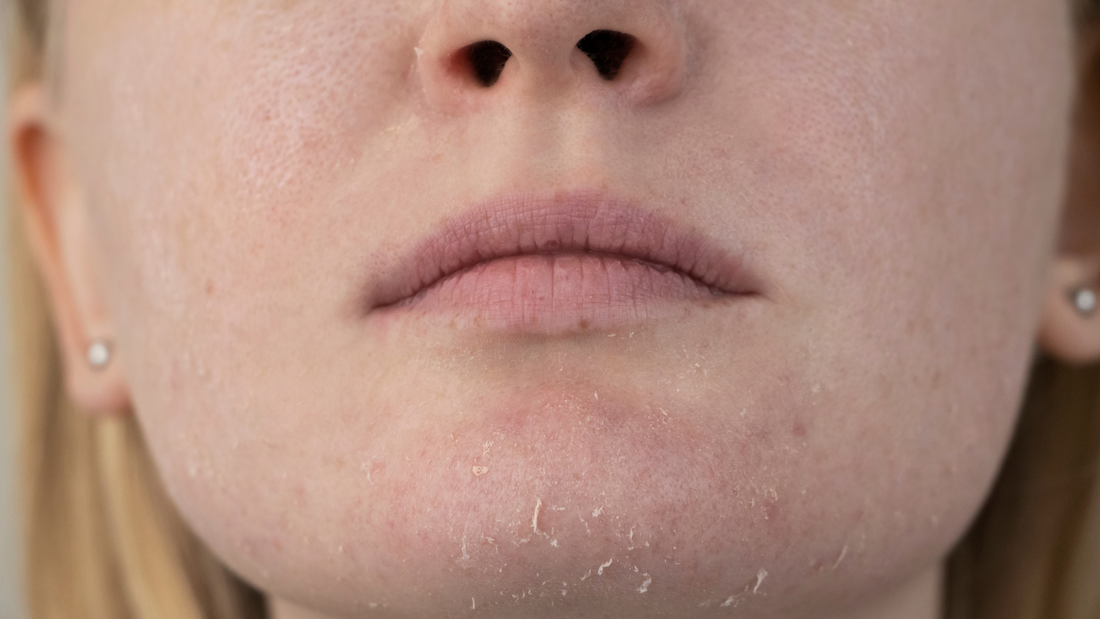You look in the mirror and see a face that doesn't look like yours anymore. Your cheeks are dry and flaky, your forehead feels tight, and your lips are chapped. Your skin is red and irritated. You feel self-conscious and just want your skin to be soft and smooth again.
If you're one of the many people who suffer from dry skin on your face, you know that it can be a frustrating and uncomfortable problem. But don't worry, there are things you can do to help relieve the symptoms and prevent the condition from getting worse.
In this blog post, we'll discuss the causes, symptoms, treatments, and tips for preventing dry skin on your face.
Causes of dry skin on your face
Dry skin on your face can be caused by a number of factors, including:
- Genetics: Some people are simply born with dry skin. This can be due to a lack of sebum, a fatty substance that helps to moisturize the skin.
- Age: As we age, our skin produces less sebum, making it more prone to dryness.
- Hormones: Hormonal changes, such as those that occur during menopause, can also make the skin drier.
- Environmental factors: Cold weather, wind, and dry air can all dry out the skin.
- Medications: Some medications, such as antidepressants and blood pressure medications, can cause dry skin as a side effect.
- Skin care products: Harsh cleansers and creams can also dry out the skin.
Symptoms
The symptoms of dry skin on your face can range from mild to severe. The most common symptoms include:
- Roughness
- Flaking
- Tightness
- Itching
- Redness
- Cracks

Treatments for dry skin on your face
There are a number of treatments that can help to relieve the symptoms of dry skin on your face. The most effective treatment will depend on the cause of the dryness.
In general, there are a few things you can do to help moisturize your skin and protect it from dryness:
- Use a moisturizer that is specifically designed for dry skin. Make sure the moisturizer contains a high concentration of moisturizing ingredients, such as glycerin, hyaluronic acid, or ceramides.
- Avoid showering or bathing too often. If you do shower or bathe, use mild soap or shower gel. It's also a good idea to keep the water temperature on the cooler side.
- Use a soft, terry cloth towel to dry your face. Pat your face dry gently instead of rubbing.
- Drink plenty of water. Water helps your body retain moisture, including in your skin.
- Protect your skin from the sun. The sun can dry out the skin and cause wrinkles. Use a sunscreen with an SPF of at least 30.
Tips for a smooth, radiant complexion
Here are a few additional tips that can help prevent dry skin on your face:
- Avoid contact with irritants, such as soap, perfume, and alcohol.
- Use a humidifier in your home. This can help to increase the humidity in the air, which can help to moisturize the skin.
- Eat a healthy diet that is rich in fruits, vegetables, and omega-3 fatty acids. These foods can help to keep your skin healthy.
Extra tip: Antioxidants help to protect against environmental aggressors. Our face oil is rich in antioxidants thanks to the many natural ingredients including Tumeric.

Conclusion
Dry skin on your face can be a frustrating problem, but there are things you can do to help relieve the symptoms and prevent the condition from getting worse. By following a good skin care routine and protecting your skin from drying factors, you can help to keep your skin soft and smooth.
If you are struggling with dry skin on your face, try the tips in this article. If you are looking for a good moisturizer that is specifically designed for dry skin, try our natural moisturizer. And if the dryness is severe or does not improve, see a dermatologist.
Other blog articles
If you liked this article, you might find these interesting:
- How to fix Red Dry Patches on Skin
- The rise of Natural Dry Skin Remedies

